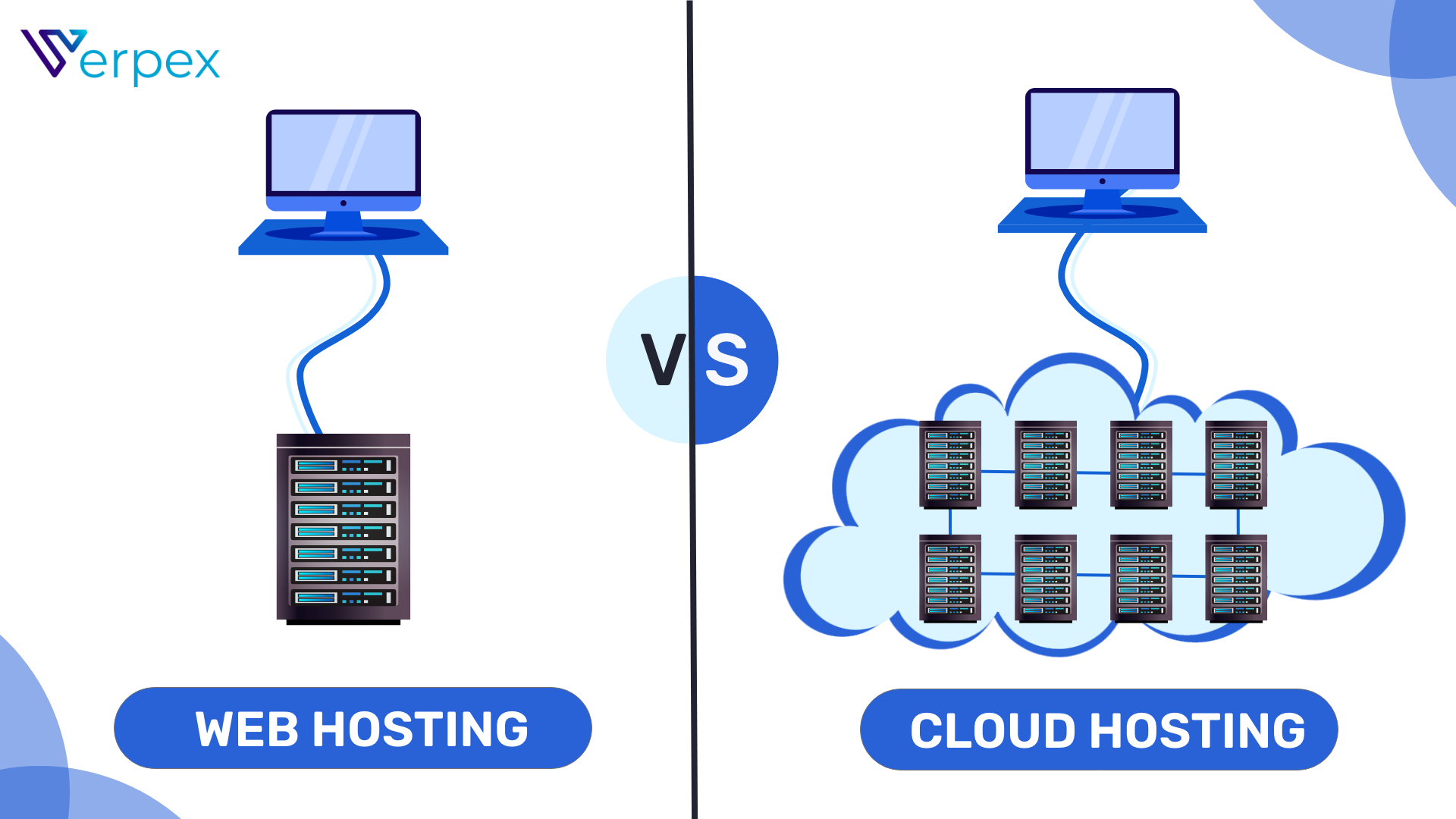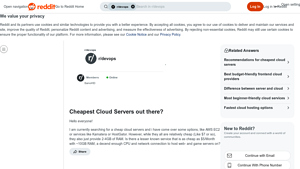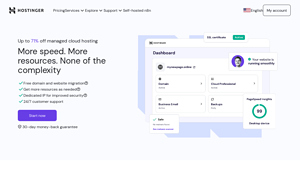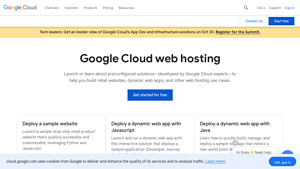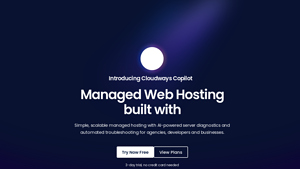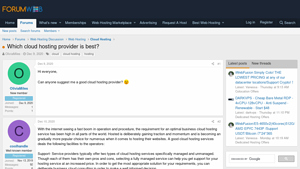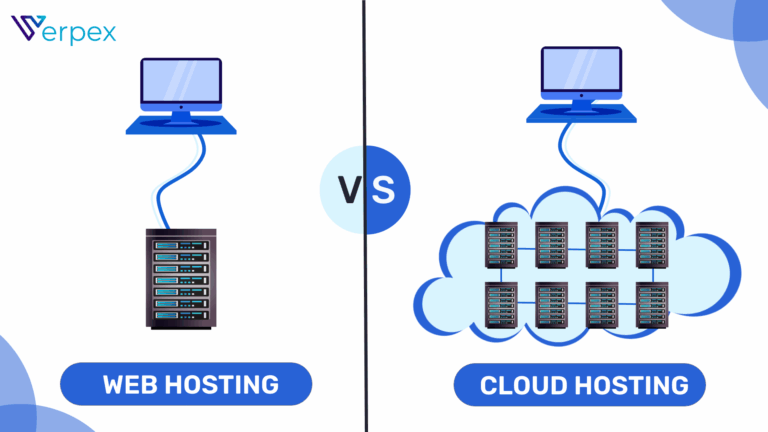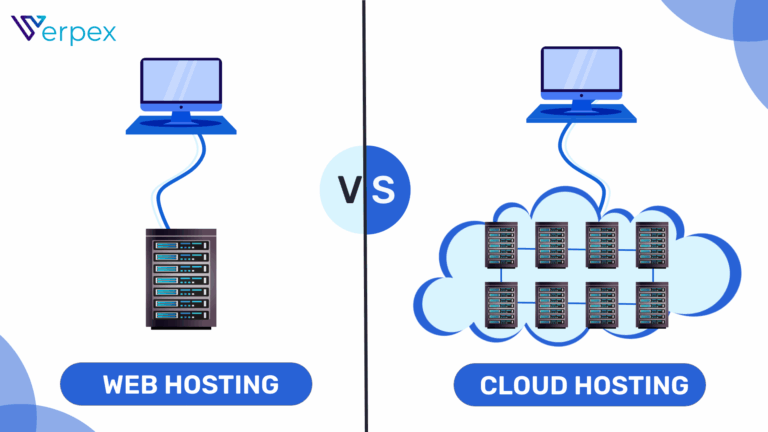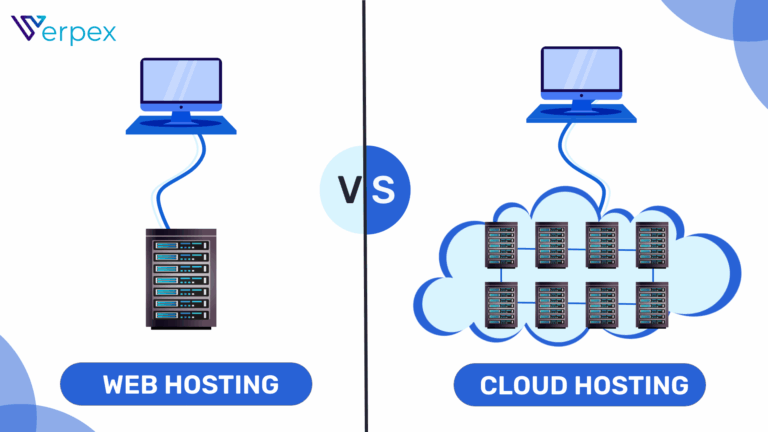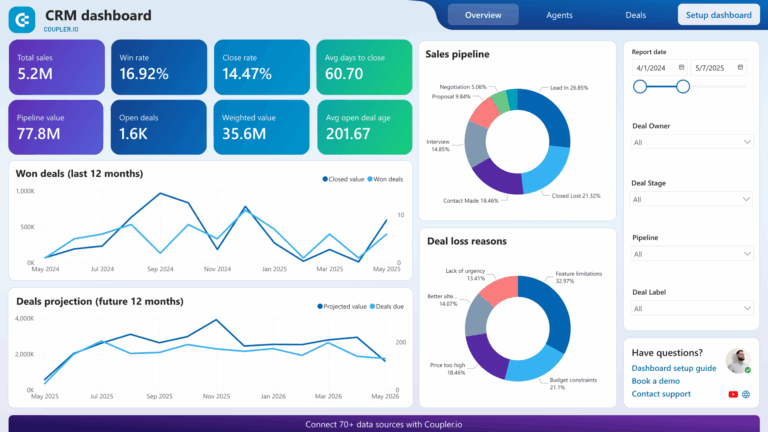Choosing a Hosting Cloud Computing Provider: Our Top Picks for 2025
Choosing Your Digital Home: An Introduction to Web Hosting
Choosing the right web hosting service is a critical foundation for any successful website, whether you’re a small business owner, a passionate blogger, or a developer launching a new project. Your web host is where your website lives on the internet, and its performance directly impacts your site’s speed, reliability, and security. Given the myriad of options available, it’s easy to feel overwhelmed by the choices. Should you opt for shared hosting, VPS, or perhaps a dedicated server? How do cloud services stack up against traditional hosting?
Navigating the Confusion
The web hosting landscape has evolved significantly over the years, offering a variety of services tailored to different needs. Each hosting type comes with its own set of advantages and challenges, making the decision even more complex. The terminology can be confusing, with terms like “IaaS,” “PaaS,” and “SaaS” thrown around, often leaving potential users unsure of what they really need. Additionally, with countless providers vying for your business, how do you discern which one is the best fit for your specific requirements?
Your One-Stop Resource
This guide aims to serve as your one-stop resource for understanding the different types of web hosting available, comparing top providers, and ultimately helping you make an informed choice. We’ll break down the core hosting types—shared, VPS, dedicated, and cloud hosting—explaining their features, benefits, and ideal use cases. You will also find detailed comparisons of leading hosting providers, highlighting their strengths, weaknesses, pricing models, and customer support options.
By the end of this guide, you will not only have a clearer understanding of the hosting landscape but also the confidence to select a hosting solution that aligns with your goals. Whether you’re launching a personal blog, an e-commerce site, or a portfolio to showcase your work, this guide is designed to empower you with the knowledge you need to choose your digital home wisely.
In the following sections, we’ll explore the various hosting types in detail, provide insights into the leading providers in the industry, and arm you with the criteria necessary for making the best decision for your unique needs. Let’s embark on this journey to find the perfect hosting solution for you!
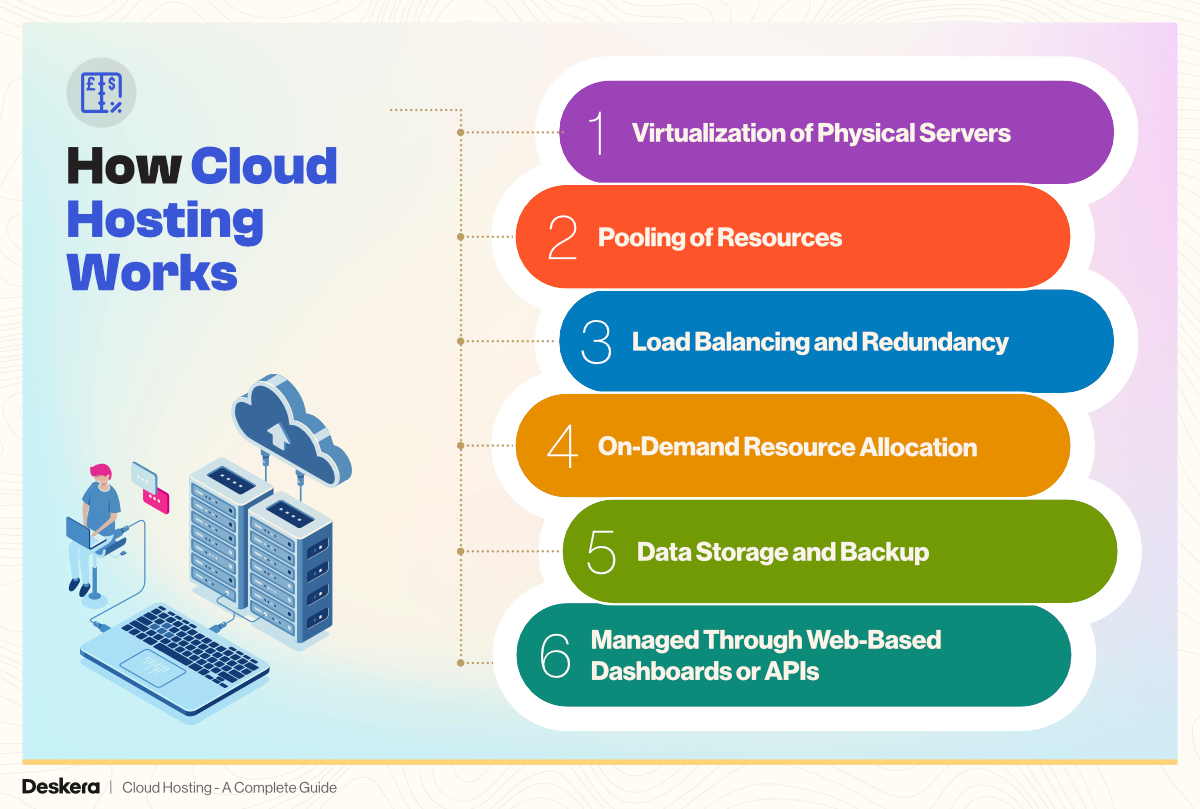
The Best Hosting Cloud Computing Providers of 2025
5. Budget-Friendly Cloud Servers That Won’t Break the Bank!
In the Reddit thread titled “Cheapest Cloud Servers out there?”, users discuss affordable cloud server options from providers like Contabo, Hetzner, OVH, Kimsufi, Online.net, Digital Ocean, Vultr, and Linode. The conversation highlights the diverse performance capabilities and pricing structures of these services, making them suitable for budget-conscious developers and businesses seeking reliable hosting solutions without compromising on quality.
- Website: reddit.com
- Company Age: Approx. 20 years (domain registered in 2005)
5. DreamHost – Top Choice for Scalable Performance!
In the CNET review of the best cloud web hosting for fast-growing websites in 2025, SiteGround stands out as the top choice, offering an ideal blend of user-friendly tools for beginners and advanced features for developers. With its robust performance, reliable uptime, and excellent customer support, SiteGround caters to a diverse audience, making it a perfect fit for both personal projects and scalable business websites.
- Website: cnet.com
- Company Age: Approx. 31 years (domain registered in 1994)
4. Hostinger – Lightning Fast Managed Cloud Hosting!
Hostinger’s managed cloud hosting service is designed for users seeking high-performance solutions, boasting up to 4X faster speeds and a reliable 99.9% uptime. With up to 20X more resources than traditional hosting, it offers enhanced power and stability, making it ideal for businesses and developers looking for scalable options. This service caters to those who prioritize speed and reliability for their online presence, ensuring a smooth user experience.
- Website: hostinger.com
- Company Age: Approx. 23 years (domain registered in 2002)
7 Reasons Why Google Cloud Web Hosting is a Game Changer
Google Cloud web hosting offers robust solutions for a diverse range of users, from individual bloggers to complex dynamic websites. With features like Click to Deploy for quick setup and the option for customized configurations, it caters to both beginners and advanced developers. Its scalable infrastructure ensures high performance, making it a suitable choice for those seeking reliable and flexible cloud hosting solutions.
- Website: cloud.google.com
- Company Age: Approx. 28 years (domain registered in 1997)
5. Cloudways – Effortless Managed Cloud Hosting!
Cloudways is a managed cloud hosting platform that offers flexibility for developers and businesses looking to host applications such as WordPress, Magento, Laravel, or PHP. With the ability to choose from multiple cloud providers, it caters to a diverse audience seeking scalable solutions. Cloudways emphasizes performance and simplicity, making it an attractive option for users who want to manage their hosting environment without the complexity typically associated with cloud services.
- Website: cloudways.com
- Company Age: Approx. 17 years (domain registered in 2008)
5. AWS – Ultimate Powerhouse for Scalability
In the quest for the best cloud hosting provider, AWS and Azure stand out for their robust performance and extensive features, catering primarily to businesses that require scalable and reliable infrastructure. For users seeking a more user-friendly option, Cloudways offers managed cloud hosting solutions that simplify deployment and management. Each provider targets different audiences, from enterprise-level clients to smaller businesses, ensuring a variety of choices based on specific needs and budgets.
- Website: forumweb.hosting
- Company Age: Approx. 9 years (domain registered in 2016)
What is Web Hosting? A Plain English Guide
Web hosting is a crucial part of getting your website online. To understand it better, think of it as renting a space where your website can live and be accessed by others on the Internet. Just like you would rent an apartment or a house to store your belongings and have a place to invite friends over, web hosting provides the necessary infrastructure for your website to exist and be available to visitors.
When you create a website, you need a place to store all the files, images, and data that make it function. Web hosting services provide that space. They own and maintain powerful computers known as servers, which store your website’s files and deliver them to users when they type your website’s address into their browser.
What is a Server?
A server is essentially a powerful computer that runs continuously to manage network resources and provide services to users. Think of it as a large library filled with books (your website’s files). Just as a librarian retrieves a book when you request it, the server retrieves your website’s files and sends them to the user’s browser.
Servers are designed to handle many requests simultaneously. When you visit a website, your browser sends a request to the server hosting that site. The server processes that request, finds the necessary files, and sends them back to your browser so you can view the site. This process happens in a matter of seconds.
How Do Domains and Hosting Connect?
To have a website, you need both a domain name and web hosting. The domain name is the address people use to find your website, like “www.example.com.” It’s similar to your home address; when someone types it into their browser, they want to reach your specific “house” on the Internet.
The connection between your domain and your hosting service is like having a mailbox at your home. Your domain name is linked to your hosting service, which stores your website’s files. When someone types your domain into their browser, the Internet looks up your domain name and finds the associated server where your website is hosted. The server then delivers the website’s content back to the user.

In summary, the domain name is your address, and web hosting is the space where your website lives. You need both to create a functional website that visitors can access online.
Why Do I Need a Hosting Service?
Having a hosting service is essential for anyone wanting to establish a web presence. Here are several reasons why:
-
Accessibility: Without web hosting, your website wouldn’t be accessible to anyone. Hosting services ensure that your site is available 24/7, allowing users to access it anytime from anywhere in the world.
-
Storage: Web hosting provides the necessary storage for your website’s files, images, and databases. If you were to host the website on your personal computer, it would not only limit accessibility but also risk losing data due to power failures or hardware issues.
-
Performance: Hosting services optimize their servers for speed and reliability. This means your website will load quickly and efficiently for visitors, which is crucial for user experience and search engine rankings.
-
Security: Hosting providers typically offer security measures to protect your website from threats like hacking or data breaches. They have firewalls, backup systems, and other security protocols in place that you may not have the resources to implement on your own.
-
Support: Most hosting services provide customer support to help you resolve any issues that may arise. Whether you have a technical question or need assistance with a website problem, having access to expert support can save you time and frustration.
-
Scalability: As your website grows, so might your hosting needs. Many hosting providers offer scalable options, allowing you to upgrade your plan to accommodate increased traffic or additional features without having to migrate your site elsewhere.
In conclusion, web hosting is a foundational component of having a website. It provides the space, resources, and support needed to ensure your site is accessible, secure, and performs well. Whether you’re a small business owner, a blogger, or a developer, choosing the right hosting service is vital for your online success.
Types of Web Hosting: A Detailed Comparison
| Hosting Type | Best For | Performance | Price Range | Key Pro | Key Con |
|---|---|---|---|---|---|
| Shared Hosting | Beginners, small websites, blogs | Moderate | $2 – $10/month | Cost-effective | Limited resources |
| VPS Hosting | Growing websites, developers | Good, customizable | $20 – $100/month | More control and resources | Higher cost than shared |
| Dedicated Server Hosting | Large businesses, high-traffic sites | Excellent, dedicated resources | $80 – $500/month | Maximum performance | Expensive and requires management |
| Cloud Hosting | Scalable sites, e-commerce | High, can handle traffic spikes | $10 – $300/month | Scalability and reliability | Complex pricing models |
| Managed WordPress Hosting | WordPress users, bloggers | High, optimized for WordPress | $15 – $50/month | Hassle-free management | Limited to WordPress |
Shared Hosting
What It Is:
Shared hosting is a type of web hosting where multiple websites are hosted on a single server, sharing its resources such as CPU, RAM, and bandwidth. It is typically the most affordable option available, making it popular among beginners and small businesses.
Who Should Use It:
Shared hosting is ideal for individuals or small businesses with low-traffic websites, personal blogs, or startups that are just beginning their online presence. If you don’t expect high traffic or need complex features, shared hosting can be a great starting point.
Pros:
– Cost-effective: Shared hosting is usually the most budget-friendly option, making it accessible for those just starting.
– Easy to use: Most shared hosting providers offer user-friendly control panels and one-click installations, making it simple for beginners to manage their sites.
– Support and resources: Shared hosting plans often come with customer support, which can help with technical issues.
Cons:
– Limited resources: Since resources are shared among multiple users, performance can suffer during peak times.
– Less control: Users have limited control over server settings and configurations.
– Security risks: If one website on the server is compromised, others may be at risk due to shared resources.
VPS Hosting
What It Is:
Virtual Private Server (VPS) hosting is a step up from shared hosting. It uses virtualization technology to provide dedicated resources on a server shared with other users. Each VPS acts as an independent server, allowing users to install software and configure settings as needed.
Who Should Use It:
VPS hosting is suitable for growing websites that require more resources and control than shared hosting can offer. It’s an excellent choice for small to medium-sized businesses, developers, or anyone running applications that need more power and flexibility.
Pros:
– More control: Users have root access to their VPS, allowing for greater customization and control over server settings.
– Dedicated resources: Each VPS has its own allocated resources, resulting in better performance compared to shared hosting.
– Scalability: VPS hosting can be easily scaled up or down based on traffic and resource needs.
Cons:
– Higher cost: While VPS hosting is more affordable than dedicated hosting, it is still more expensive than shared hosting.
– Management required: Users need some technical knowledge to manage and maintain their VPS effectively.
– Potential for resource contention: While resources are dedicated, if the server is overloaded, performance can still be affected.
Dedicated Server Hosting
What It Is:
Dedicated server hosting provides an entire physical server dedicated to a single user or organization. This means all resources, including CPU, RAM, and storage, are exclusively available for that user’s website or applications.
Who Should Use It:
Dedicated hosting is best for large businesses or high-traffic websites that require maximum performance, security, and control. It’s also suitable for applications that demand significant resources, such as gaming servers or complex databases.
Pros:
– Maximum performance: With dedicated resources, users can achieve high levels of performance and speed.
– Full control: Users have complete control over the server environment, allowing for custom configurations and installations.
– Enhanced security: Dedicated servers provide a higher level of security since no other users share the server.
Cons:
– High cost: Dedicated hosting is significantly more expensive than shared or VPS hosting, making it less suitable for small businesses or personal websites.
– Management complexity: Users need technical expertise to manage and maintain the server, or they may need to hire IT professionals.
– Overhead: In some cases, dedicated servers may be overkill for smaller websites with low traffic.
Cloud Hosting
What It Is:
Cloud hosting is a type of hosting that uses a network of virtual servers in the cloud to host websites and applications. This technology allows for increased flexibility and scalability, as resources can be allocated dynamically based on demand.
Who Should Use It:
Cloud hosting is ideal for businesses that experience variable traffic or require high availability. It’s particularly beneficial for e-commerce sites, large applications, and businesses looking for a scalable solution.
Pros:
– Scalability: Resources can be easily scaled up or down depending on current needs, making it perfect for fluctuating traffic.
– Reliability: Cloud hosting typically offers high uptime and redundancy, as data is stored across multiple servers.
– Pay-as-you-go pricing: Many cloud hosting providers offer pricing based on actual usage, allowing for cost efficiency.
Cons:
– Complex pricing models: Understanding cloud pricing can be challenging due to variable costs based on usage.
– Dependence on the internet: Since cloud hosting relies on internet connectivity, any disruptions can affect access to the website.
– Technical knowledge required: Managing cloud infrastructure can require more technical expertise than traditional hosting types.
Managed WordPress Hosting
What It Is:
Managed WordPress hosting is a specialized hosting service tailored specifically for WordPress websites. It includes features such as automatic updates, backups, and enhanced security measures, all optimized for WordPress performance.
Who Should Use It:
Managed WordPress hosting is perfect for bloggers, businesses, and anyone who wants to run a WordPress site without worrying about technical management. It’s especially beneficial for those who expect moderate to high traffic and want a hassle-free experience.
Pros:
– Optimized performance: Managed WordPress hosts often employ caching, CDNs, and other optimizations to ensure fast loading times.
– Ease of use: Most managed hosting providers handle technical aspects, allowing users to focus on content creation and marketing.
– Enhanced security: Managed hosting typically includes security measures specifically designed to protect WordPress sites from vulnerabilities.
Cons:
– Higher cost: Managed WordPress hosting tends to be more expensive than traditional shared hosting.
– Limited flexibility: Users may be restricted in terms of plugins and customizations, as some hosts may not allow certain features for security reasons.
– WordPress only: This type of hosting is specifically for WordPress, making it unsuitable for users who want to host other types of websites.
In conclusion, understanding the different types of web hosting is crucial for making an informed decision that aligns with your website’s needs, budget, and growth potential. Each hosting type offers unique benefits and drawbacks, so consider your specific requirements carefully before choosing a hosting solution.
How to Choose a Hosting Provider: A 5-Point Buyer’s Guide
Performance and Uptime
Why It Matters
Performance and uptime are critical factors in selecting a hosting provider. A website that is slow or frequently down can lead to lost visitors, decreased user satisfaction, and ultimately, lost revenue. Search engines also prioritize sites with high uptime and fast load speeds, impacting your site’s visibility in search results.
What to Look For
1. Uptime Guarantee: Most reputable hosting providers offer an uptime guarantee of 99.9% or higher. This percentage indicates the reliability of the service. Look for providers that offer service level agreements (SLAs) to back up their claims.
-
Speed Metrics: Check for performance metrics such as page load time and server response time. Many providers offer tools or third-party reviews that measure these factors. A loading time of less than 3 seconds is generally considered acceptable.
-
Data Center Location: The geographical location of the hosting provider’s data centers can affect load times. Choose a provider with data centers close to your target audience to minimize latency.
-
Content Delivery Network (CDN): Some providers include a CDN in their hosting plans, which helps distribute your website’s content globally, improving load times for users regardless of their location.
Customer Support
Why It Matters
When issues arise, having access to knowledgeable and responsive customer support can save you time and frustration. Whether you’re experiencing technical difficulties or have questions about your hosting service, prompt support can help you get back on track quickly.
What to Look For
1. Support Channels: Look for providers that offer multiple support channels, such as live chat, phone support, email, and support tickets. This flexibility allows you to choose the method that works best for you.
-
Availability: Ensure that support is available 24/7, especially if your website operates in multiple time zones or if you expect traffic at all hours.
-
Knowledge Base and Resources: A robust knowledge base, tutorials, and community forums can be invaluable for troubleshooting common issues independently. Check if the provider offers these resources.
-
Response Times: Review customer testimonials and independent reviews to gauge response times and the quality of support. Providers that consistently receive high marks for customer service are usually a safer bet.
Pricing and Renewal Rates
Why It Matters
While the initial pricing of a hosting plan is crucial, it’s equally important to understand renewal rates and any additional costs that may arise. Some providers offer attractive introductory rates but significantly increase prices upon renewal.
What to Look For
1. Transparent Pricing: Look for clear pricing structures with no hidden fees. Understand what the introductory rate covers and what the renewal rate will be.
-
Contract Length: Many providers offer discounts for long-term commitments. Evaluate whether you’re comfortable with a longer contract or prefer a month-to-month plan for flexibility.
-
Add-On Costs: Be aware of potential additional costs for features like backups, SSL certificates, and domain registration. Some providers bundle these features into their plans, while others charge separately.
-
Money-Back Guarantee: A money-back guarantee (typically 30 days) can provide peace of mind. If the hosting service doesn’t meet your expectations, you can get a refund within that period.
Security Features (SSL, Backups)
Why It Matters
Security is paramount in today’s online landscape, where cyber threats are rampant. A secure hosting environment protects your website, sensitive customer data, and your reputation. Failing to prioritize security can lead to breaches, data loss, and even legal ramifications.
What to Look For
1. SSL Certificates: An SSL certificate encrypts data transmitted between your website and its users, which is essential for protecting sensitive information. Many providers offer free SSL certificates through services like Let’s Encrypt, while others may charge for premium options.
-
Regular Backups: Ensure the provider offers regular, automated backups of your website. This feature is critical for disaster recovery, allowing you to restore your site quickly in case of data loss.
-
Security Protocols: Look for features such as firewalls, DDoS protection, and malware scanning. These measures can help protect your website from various threats.
-
Compliance: If your business handles sensitive information, such as personal data or payment information, ensure that the hosting provider complies with relevant regulations (e.g., GDPR, HIPAA) to avoid legal issues.
Scalability and Future Growth
Why It Matters
As your website grows, your hosting needs may change. A hosting provider that can scale with your business ensures that you won’t outgrow your plan too quickly or face unnecessary disruptions during growth phases.
What to Look For
1. Upgrade Options: Check whether the provider offers a range of hosting plans, including shared, VPS, dedicated, and cloud hosting. The ability to upgrade seamlessly is essential as your website traffic and resource needs increase.
-
Resource Allocation: Understand how resources (CPU, RAM, bandwidth) are allocated across plans. Choose a provider that allows you to adjust these resources without significant downtime.
-
Load Balancing: Some providers offer load balancing solutions to manage traffic spikes effectively. This feature ensures that your website remains responsive even during high-traffic periods.
-
Cloud Hosting Options: Consider providers that offer cloud hosting solutions. Cloud hosting can provide greater flexibility and scalability, allowing you to pay for only the resources you use.
Conclusion
Choosing the right hosting provider is a critical decision for any small business owner, blogger, or developer. By evaluating performance and uptime, customer support, pricing and renewal rates, security features, and scalability, you can make an informed choice that aligns with your current needs and future growth plans. Take the time to research and compare different providers to ensure you find a solution that supports your online presence effectively.
Key Hosting Terms and Jargon Explained
cPanel
Definition:
cPanel is a web-based control panel that allows users to manage their web hosting accounts easily. It provides a graphical interface and automation tools designed to simplify the process of hosting a website. With cPanel, users can perform various tasks such as creating email accounts, managing databases, uploading files, and installing software applications.
Key Features:
- User-Friendly Interface: cPanel offers an intuitive dashboard that is accessible to users with little technical knowledge.
- File Management: Users can upload, download, and organize files directly through the interface.
- Email Management: Users can create and manage email accounts associated with their domain.
- Backup and Restore: cPanel provides tools for backing up website data and restoring it when necessary.
SSL Certificate
Definition:
An SSL (Secure Socket Layer) certificate is a digital certificate that encrypts data transmitted between a user’s web browser and a web server. This encryption ensures that sensitive information, such as credit card details and personal data, is securely transmitted, protecting it from hackers and eavesdroppers.
Key Features:
- Data Encryption: SSL certificates encrypt data during transmission, making it unreadable to unauthorized parties.
- Trust Indicators: Websites with SSL certificates display “https://” in the URL and often show a padlock icon, indicating a secure connection.
- Improved SEO: Search engines like Google prioritize secure websites in search rankings, making SSL certificates beneficial for SEO.
Bandwidth and Data Transfer
Definition:
Bandwidth refers to the maximum amount of data that can be transmitted over an internet connection in a given time frame, usually measured in bits per second (bps). Data transfer, on the other hand, refers to the actual amount of data that is sent and received over a specific period.
Key Features:
- Bandwidth Limitations: Hosting providers may impose bandwidth limits, which can affect website performance if exceeded.
- Monthly Data Transfer: Many hosting plans specify a maximum amount of data transfer allowed each month, impacting how many visitors your website can handle.
- Overages: Exceeding bandwidth limits may result in additional charges or throttled speeds, depending on the hosting provider’s policy.
Storage (SSD vs. HDD)
Definition:
Storage refers to the type of media used to store website files and data. The two common types are SSD (Solid State Drive) and HDD (Hard Disk Drive).
SSD (Solid State Drive):
- Speed: SSDs are significantly faster than HDDs because they use flash memory to store data, resulting in quicker load times for websites.
- Durability: SSDs are more resistant to physical shock and wear compared to HDDs.
- Cost: Generally, SSDs are more expensive per gigabyte than HDDs.
HDD (Hard Disk Drive):
- Capacity: HDDs typically offer larger storage capacities at a lower cost compared to SSDs.
- Speed: HDDs are slower due to their mechanical moving parts, which can lead to longer load times for websites.
- Durability: HDDs are more susceptible to damage from physical impacts and wear over time.
Domain Name System (DNS)
Definition:
The Domain Name System (DNS) is a hierarchical system that translates human-readable domain names (like www.example.com) into IP addresses (numerical labels) that computers use to identify each other on the network. DNS is essential for routing internet traffic and ensuring users can access websites easily.
Key Features:
- Domain Resolution: DNS servers resolve domain names to IP addresses, allowing browsers to locate and access websites.
- Record Types: DNS includes various record types, such as A records (address records), CNAME records (canonical name records), and MX records (mail exchange records), each serving a different purpose.
- Propagation: Changes made to DNS records can take time to propagate across the internet, affecting how quickly updates are visible.
Uptime
Definition:
Uptime refers to the amount of time a web hosting service is operational and accessible to users. It is typically expressed as a percentage, with higher percentages indicating more reliable service. For example, an uptime of 99.9% means the service is down for only a minimal amount of time each month.
Key Features:
- Reliability Indicator: Uptime is a critical metric for evaluating the reliability of a hosting provider. A higher uptime percentage means less downtime and better service for website visitors.
- Service Level Agreements (SLAs): Many hosting providers offer SLAs that guarantee a certain level of uptime; failure to meet these guarantees may result in compensation.
- Monitoring Tools: Various tools and services are available to monitor uptime, helping website owners ensure their sites remain accessible and perform well.
Frequently Asked Questions (FAQs)
1. Can I host my own website?
Yes, you can host your own website. This is typically done using a personal server or a local machine configured to serve web pages. However, hosting your own website requires technical knowledge, including setting up a web server, managing security, and ensuring uptime. Many small business owners and bloggers prefer using a web hosting service for reliability and ease of use.
2. How much should I pay for hosting?
The cost of web hosting can vary widely based on the type of hosting you choose. Shared hosting plans can start as low as $2 to $10 per month, while VPS (Virtual Private Server) hosting can range from $20 to $100 per month. Dedicated hosting and cloud hosting can be more expensive, often ranging from $100 to several hundred dollars per month. It’s important to assess your needs and budget when selecting a hosting plan.
3. What’s the difference between a domain and hosting?
A domain is your website’s address on the internet (e.g., www.example.com), while hosting refers to the service that stores your website’s files and makes them accessible online. You need both to have a functioning website: the domain directs users to your site, and the hosting provides the necessary infrastructure to display your content.
4. What are the different types of web hosting?
There are several types of web hosting, including:
– Shared Hosting: Multiple websites share the same server resources. It’s affordable and suitable for small websites.
– VPS Hosting: A virtual server that provides more resources and control compared to shared hosting. It’s ideal for growing websites.
– Dedicated Hosting: A dedicated server for a single website, offering maximum control and performance. It’s best for large websites with high traffic.
– Cloud Hosting: Utilizes multiple servers to host your website, ensuring scalability and reliability. It’s suitable for websites with fluctuating traffic.
– Managed WordPress Hosting: Specifically designed for WordPress sites, offering optimized performance and automatic updates.
5. What is cloud hosting and how does it work?
Cloud hosting utilizes a network of interconnected virtual servers to host websites, allowing for scalable resources based on demand. Unlike traditional hosting, where your website is stored on a single server, cloud hosting spreads your website’s data across multiple servers. This enhances reliability, as your site can remain online even if one server fails. Cloud hosting typically operates on a pay-as-you-go model, meaning you only pay for the resources you use.
6. How do I choose the right hosting provider?
To choose the right hosting provider, consider the following factors:
– Performance: Look for uptime guarantees and speed optimizations.
– Support: Ensure they offer 24/7 customer support through multiple channels.
– Pricing: Compare plans and check for hidden fees or renewal rates.
– Scalability: Choose a provider that can grow with your website, offering easy upgrades.
– Security: Look for features like SSL certificates, firewalls, and regular backups.
7. Can I switch hosting providers later?
Yes, you can switch hosting providers at any time. The process typically involves backing up your website data, transferring files to the new hosting provider, and updating your domain’s DNS settings. While the migration can take some technical know-how, many hosting providers offer migration assistance or services to simplify the process.
8. What is a control panel, and why is it important?
A control panel is a web-based interface that allows you to manage your hosting account and website. It provides tools for managing files, databases, email accounts, and domain settings. Common control panels include cPanel and Plesk. A user-friendly control panel is essential, especially for beginners, as it simplifies tasks such as installing applications, setting up email, and monitoring website performance.
Conclusion: Making Your Final Decision
Understanding Your Unique Needs
Choosing the right web hosting service is a crucial step in launching your website, whether you’re a small business owner, a blogger, or a developer. The “best” hosting solution varies greatly depending on individual needs, such as your budget, expected traffic, and technical expertise. For example, a startup may prioritize affordability and scalability, while an established business might require robust support and high uptime guarantees.
Key Considerations for Your Decision
As you weigh your options, keep in mind the following essential factors:
-
Support: Reliable customer support can make a significant difference, especially if you encounter technical issues. Look for providers that offer 24/7 assistance through multiple channels, such as chat, email, or phone.
-
Uptime: A hosting service’s uptime percentage indicates its reliability. Aim for providers that guarantee at least 99.9% uptime to ensure your website remains accessible to visitors.
-
Scalability: As your website grows, your hosting needs will likely change. Choose a provider that allows you to easily upgrade your plan or resources without significant downtime or hassle.
Take the Next Step with Confidence
With these factors in mind, take the time to assess your specific requirements. Research different hosting providers, read user reviews, and consider trial periods where available. Remember, the goal is to find a solution that aligns with your unique needs and sets you up for success.
Embarking on your web hosting journey can feel overwhelming, but with careful consideration and planning, you can choose a hosting service that empowers you to build and grow your project confidently. Start your journey today, knowing that the right hosting service is out there waiting to support your vision!
Important Disclaimer
⚠️ Important Disclaimer
The information and reviews in this guide are for educational purposes, based on publicly available data and our own analysis. We are not affiliated with any hosting providers mentioned. Features, pricing, and performance change frequently. Always conduct your own research and check the provider’s official website before making a purchase.
